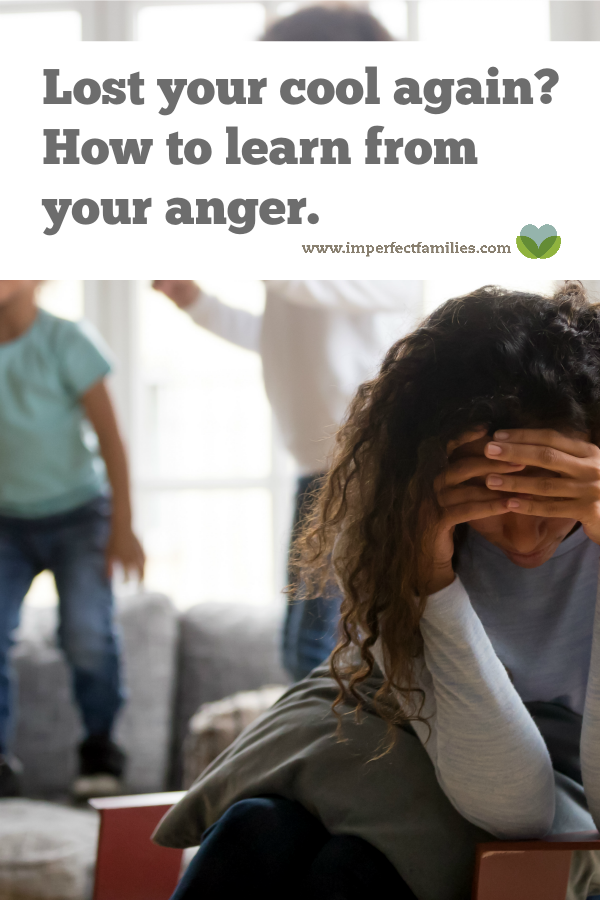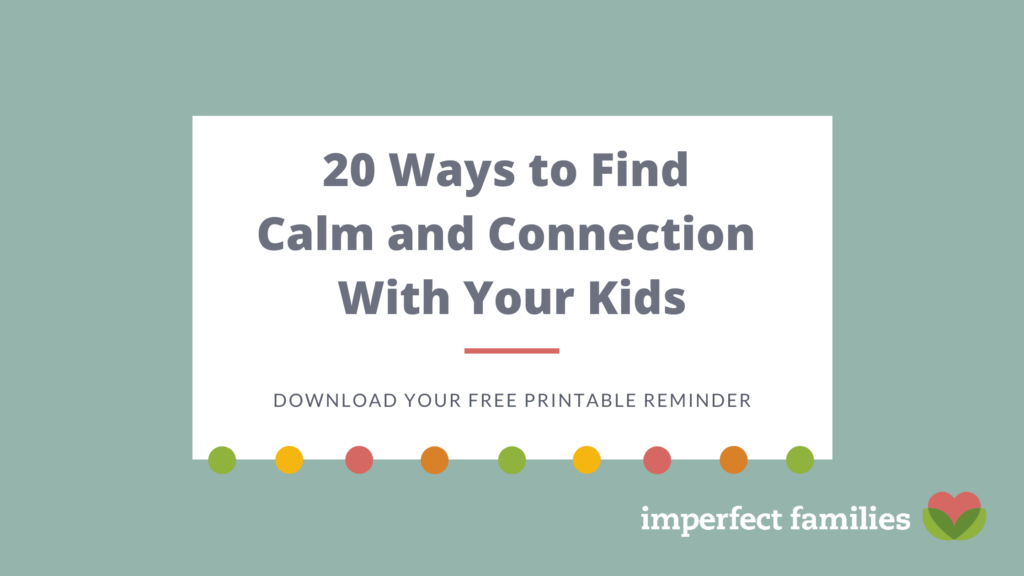Tired of responding to your kids with anger? Want to stay calm, but continue yelling instead? You’re not alone. Use these tips to learn from your anger and move forward in a positive direction.

You’ve heard a lot about being calm: It’s the best way to make a decision. It’s the best way to support your kids when they’re having a meltdown. It’s the best way to show comfort when your child is hurting.
There’s no denying the power of being calm with our kids.
There’s also no denying there’s a lot of shame and guilt wrapped up in our less-than-calm parenting moments.
When we lose our cool or get angry at our kids, that little voice inside often whispers (or yells):
“You’re a parenting failure!”
“Why can’t you get it together?”
“What’s wrong with you?”
“Your kids are going to be talking about this with their therapist someday!”
Staying calm often becomes a chore. Rather than being genuinely calm with your kids, you put on a fake-calm exterior, pushing the rage down inside (only for it to bubble up in some other inappropriate time later). Empathy is all for show – with the intent of stopping the meltdown immediately – rather than truly guiding your child through their big feelings.
If you can relate to any of these situations, you are normal. Welcome!
The Benefits of Anger
Staying calm and serene 100% of the time is not how we’re wired as people. We’re made to experience a wide variety of emotions. Plus, we are created to be in community with others, so when our kids feel a big feeling, guess what? We feel emotional too!
Positive parenting is not about some zenned-out parents who refuse to accept their emotions.
It’s about parents who are willing to see emotions as a part of life. And who are willing to learn from those less-than-calm experiences.
Here are a few benefits of anger, frustration, or other big “negative” emotions (yelling, threatening, losing your cool, etc.)
- It shows you your triggers.
- It shows you places to grow.
- It shows you your personal hurts.
- It shows you when you’re giving too much of yourself.
- It shows you when a boundary has been crossed.
- It shows you that you are a person with needs (that may not be met).
- It shows you what needs to be changed.
- It shows you that you are isolated or lacking connection.
- It shows you that you may need more support.
This list is not exhaustive! There may be many other things you can learn from times of anger or frustration.
How to Learn from Anger
Of course, we don’t want to stay in an angry state forever or brush it off as “just part of life.” We want to use this information to move forward in a positive way.
Here’s my recommendation:
Next time you get upset, wait until your brain is back to calm. This might be a few minutes or a few hours after you the incident.
Start by taking a few good deep breaths.
Then, explore what happened before, during, and after the big feelings. What was going on that day, what was going on in your brain, your body, your environment. What other things may have impacted your mood or reaction? You may want to write this down in a journal or a notebook or talk it through with a trusted friend.
- What patterns do you discover?
- What signs is this anger pointing to?
- What can you learn now to be ready next time this situation comes up?
There is no right or wrong answer. The most important part of this exercise is that you are kind to yourself. When you hear those negative, shaming voices inside your head, STOP. Take another deep breath. Talk to yourself using compassionate, kind, empathetic words you would use with a friend who was hurting.
“Yes, I lost my cool today. It’s a normal part of life. I’m learning and growing as a parent. This anger showed me that I was pushed beyond my limits. Every parent has been there! I’m not a bad parent. I realize I need to tune into my body and my stress level. That’s not easy to do, but I’m going to work on it.”
Once you’ve identified a pattern or noticed something about your anger, make a plan to move forward in a positive direction. Not perfectly, just one step at a time, one interaction at a time. (Need more support as you make this plan? Schedule an online parent coaching session today! We’ll talk through it together.)
Staying calm is not the end-all-be-all goal of parenting. It’s helpful and important. But all emotions can be helpful and important – even anger – if you decide to learn from them.



Comments have been turned off to retain the privacy of all families. If you have a question or comment on the topic, you're always welcome to contact me.